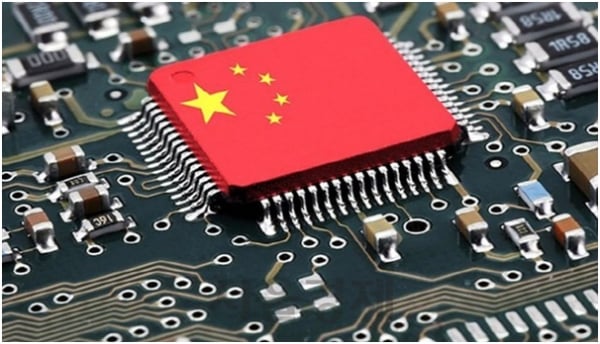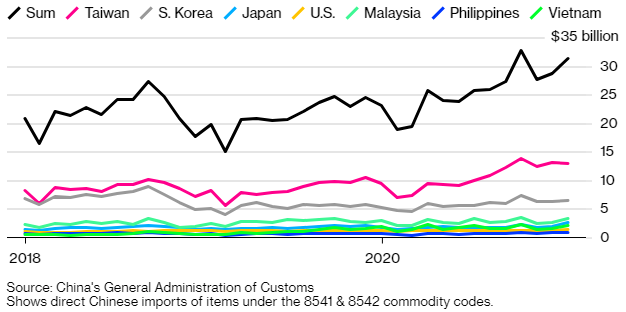The recent US ban on some Chinese companies such as Huawei prompted the company to stockpile chips in 2020. A recent report by Bloomberg shows that China’s chip imports in 2020 will climb to nearly $380 billion USD, accounting for about 18% of total domestic imports.
According to Bloomberg’s analysis of official trade data, China purchased nearly US$32 billion in equipment from Japan, South Korea, Taiwan, and other places for chip production in 2020, an increase of 20% over 2019.
“In the short term, China will rely on imports to improve the level of chip manufacturing,” said Wang Dan, a technical analyst at Gavekal Dragonomics. “China does not yet have the ability to produce the chip manufacturing equipment required for advanced processes. But China is investing heavily, and success requires ten Years of hard work.”
Chinese chip manufacturing companies, such as SMIC, have purchased more equipment needed to manufacture silicon wafers and chips. According to a report by the International Semiconductor Industry Association (SEMI) in December last year, China has become the largest market for semiconductor equipment in 2020.
Due to the restrictions imposed by the United States, Chinese companies reserve chips in advance, and China’s chip imports surged by about 14% in 2020. In addition, due to the new crown pandemic being forced to work and study at home, strong demand for PCs has also stimulated the import of Chinese chips and the export of smartphones and PCs.
According to statistics, China’s top 7 sources of chip imports exceeding US$300 billion include Taiwan, South Korea, Japan, the United States, Malaysia, the Philippines, and Vietnam. Among them, Taiwanese companies including TSMC have benefited the most.
In 2021, the demand for chips will continue to grow. The International Semiconductor Industry Association predicted in December that global chip sales will increase by 8.4% this year. Companies such as Intel, TSMC, and Samsung Electronics will continue to benefit.
Chinese chip manufacturing companies will also continue to purchase semiconductor equipment to produce more chips, which will help the sales growth of companies such as Tokyo Electronics and ASML.
RELATED;
- Vivo S9 launch date could be March 6; Dimensity 1100 chipset, 44MP dual selfie camera expected
- MediaTek’s new budget 5G chipsets reported to use 10/12nm process
- LG & Qualcomm partners to jointly develop a 5G in-vehicle platform
(source)







